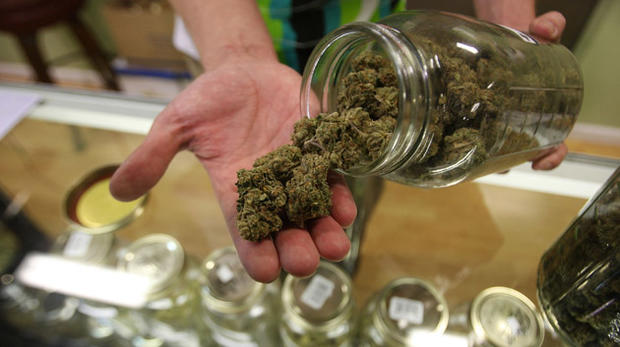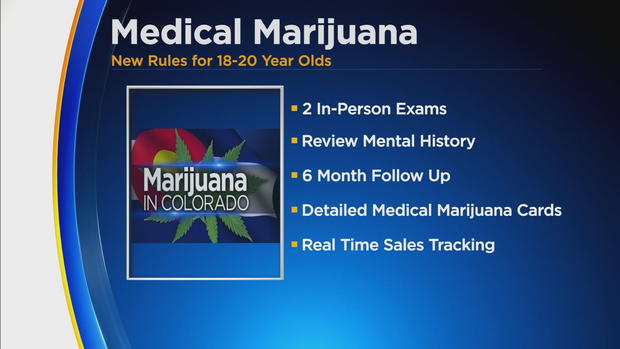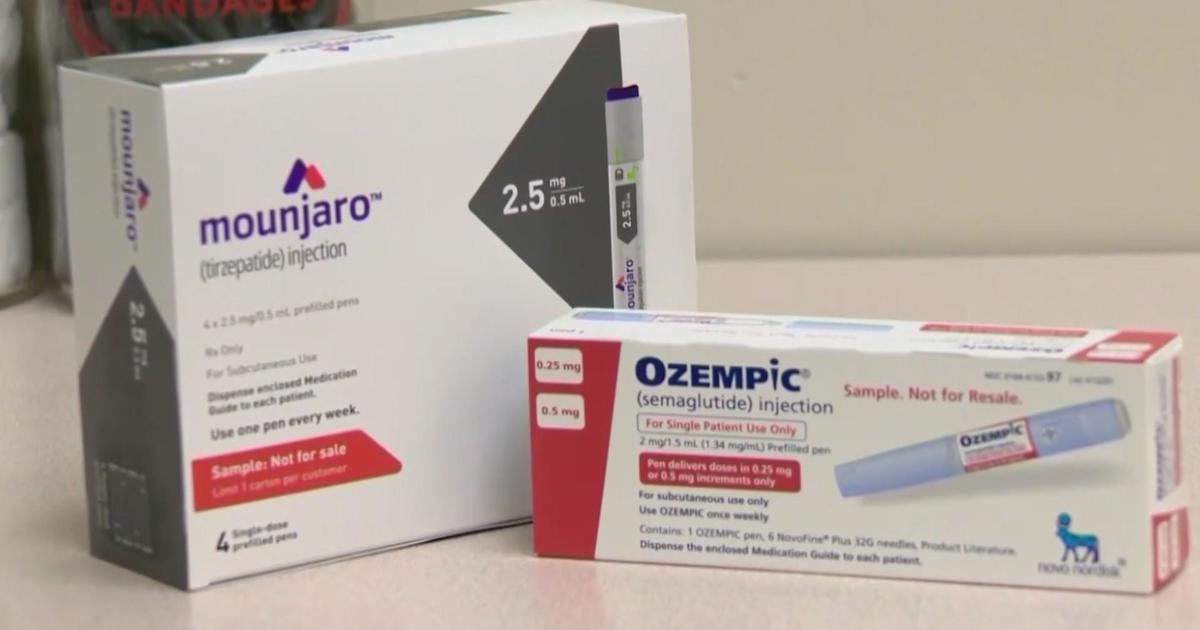State Lawmakers Consider Big Changes To Colorado's Medical Marijuana Regulations
DENVER (CBS4) - State lawmakers are considering some of the biggest changes to Colorado's medical marijuana rules since pot was legalized here. A new bill would make it more difficult for 18 to 20-year-olds to get medical marijuana and would limit how much they could get each day.
At a press conference on Tuesday, bill sponsors Sen. Kevin Priola and Rep. Tim Geitner, shared personal stories of the impact of high potency pot.
"My wife and I have struggled with our son with high potency concentrates," Priola said.
"I have a nephew who journeyed down this path using high potency products while he was in his early to mid-teen years," Geitner added.
The lawmakers say Colorado led the nation in the legalization of pot and it now has a responsibility to lead the regulation of it, especially when it comes to those 18 to 20-years-old. Supporters of the bill say many young people have no medical conditions but get medical marijuana cards to use pot and sell it to their younger friends.
Pot concentrates are especially popular among young people and can have 80 to 90 percent THC. Some doctors say the high potency pot is leading to addiction, psychosis, and even suicide. Originally, lawmakers considered limiting the potency of THC in pot, but opponents argued that would make some strains off-limits to kids who rely on them to treat severe disabilities.
The bill lawmakers introduced would instead require 18 to 20-year-olds, who want a medical marijuana card, to get an in-person exam, including a mental health review, by two physicians in two separate practices as well as follow-up appointments every six months. The doctors could only prescribe pot for problems they are trained to treat, and they would have to specify the potency, dosage, and daily limit for each patient.
The bill also requires concentrates be sold in one-gram packages, to help avoid overdoses, and limits sales to two grams per day or eight grams per day if a patient is over age 20. They are now limited at 40 grams per day, but people can buy more by simply going to multiple dispensaries. The bill would require real-time tracking of sales to prevent that.
Connie Boyd is among those supporting the bill. Her son is in a nursing home, she says, with cannabis-induced schizophrenia.
"The whole process of this bill will create an awareness that people have to understand. My son actually was invited to smoke pot at 15 at parents' homes of his friends. I mean they got high with him," she said.
Stacey Linn says the bill will help some kids at the expense of others like her son, who relied on high potency pot for severe medical issues before he died.
"I lost my child, and I understand that, I do, and I want to stop it. But it is very challenging to help people understand the difficulties that this presents," Linn said. "To most people these are lines in a law and these are statutes that look good, but this is our life."
The bill does make exceptions to the daily pot limit and in-person doctor visits for kids with severe medical problems, but Linn is still worried it will hurt access and affordability.
One thing both sides like about the bill is that it includes nearly $2 million to study the impact of high potency pot on young people and to launch an education campaign.





